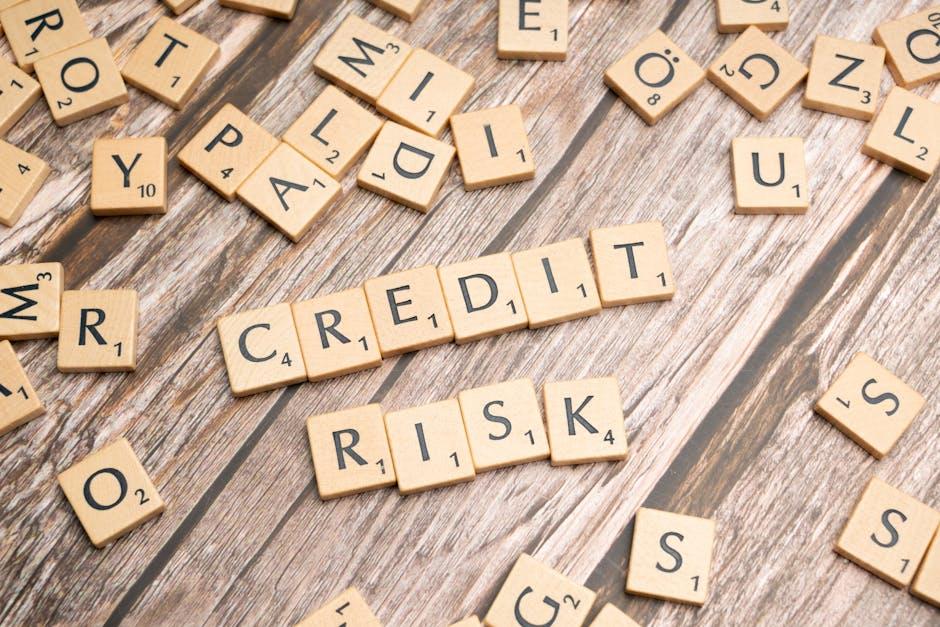In the high-stakes world of business, where trust is currency and reputation is everything, the specter of fraud looms like a shadowy adversary. As companies navigate the intricate web of global markets, the question isn’t just whether they can thrive, but whether they can withstand the shockwaves of scandal. Imagine waking up to headlines that your business is embroiled in a fraud scandal—clients withdrawing, partners distancing, and employees questioning their loyalty. Could your enterprise weather the storm, or would it crumble under the weight of public scrutiny and legal repercussions? In this article, we delve into the anatomy of corporate resilience, exploring the strategies and safeguards that can fortify your business against the unthinkable. Join us as we unravel the complexities of crisis management and uncover the keys to emerging not just intact, but stronger than ever.
Detecting Red Flags Early Strengthens Resilience
In today’s fast-paced business environment, identifying potential threats before they escalate is crucial for maintaining the integrity and reputation of your company. Early detection of red flags is not just about preventing financial loss; it’s about fortifying your business against potential scandals that could undermine years of hard work. By cultivating a culture of vigilance and accountability, businesses can build a robust framework that not only detects anomalies but also responds to them effectively. Implementing comprehensive training programs and encouraging open communication can empower employees to report suspicious activities without fear of retribution.
- Regular Audits: Conducting frequent and thorough audits can uncover irregularities before they develop into larger issues.
- Whistleblower Policies: Establishing clear and protected channels for reporting misconduct encourages transparency.
- Data Analytics: Utilizing advanced analytics tools to monitor transactions can help identify unusual patterns indicative of fraud.
- Employee Training: Educating staff on the signs of fraud and ethical practices fosters a proactive approach to risk management.
By prioritizing these strategies, businesses can not only mitigate the risk of fraud but also enhance their resilience against future challenges, ensuring long-term success and stability.

Building a Culture of Transparency and Trust
In the wake of a fraud scandal, the resilience of your business hinges on the foundation of transparency and trust that you’ve cultivated. These elements are not just buzzwords but essential pillars that can make or break your company’s reputation. Establishing a culture where honesty is paramount requires deliberate action and commitment. Consider implementing the following strategies:
- Open Communication Channels: Encourage an environment where employees feel safe to voice concerns without fear of retaliation. This can be achieved through regular meetings, anonymous feedback systems, and a clearly defined whistleblower policy.
- Consistent Ethical Training: Regularly conduct training sessions that reinforce the importance of ethical behavior and transparency. This not only educates employees but also signals the company’s commitment to integrity.
- Leadership by Example: Ensure that leaders at all levels exemplify the values of transparency and trust. Their behavior sets the tone for the rest of the organization, demonstrating that ethical conduct is non-negotiable.
By embedding these practices into the fabric of your business, you not only mitigate the risk of fraud but also fortify your company’s ability to withstand and recover from potential scandals. A transparent and trustworthy culture is not just a safeguard; it is a competitive advantage that enhances your brand’s credibility and longevity.
Implementing Robust Internal Controls and Audits
In the complex landscape of modern business, establishing robust internal controls and conducting regular audits are crucial steps in safeguarding your organization against potential fraud. Internal controls serve as the backbone of your company’s financial integrity, ensuring that all transactions are accurately recorded and that assets are protected from misuse. By implementing a well-structured control environment, businesses can mitigate risks and detect irregularities before they escalate into significant issues.
- Segregation of Duties: Divide responsibilities among different employees to reduce the risk of errors or fraudulent activities.
- Access Controls: Limit access to financial systems and sensitive information to authorized personnel only.
- Regular Reconciliations: Conduct frequent reconciliations of accounts to ensure that all financial records are accurate and up-to-date.
- Independent Audits: Engage external auditors to provide an unbiased review of your financial statements and internal processes.
These measures not only help in detecting and preventing fraud but also instill confidence among stakeholders and investors. By fostering a culture of transparency and accountability, your business can withstand scrutiny and emerge resilient in the face of potential scandals.
Crafting a Strategic Crisis Management Plan
In the unpredictable world of business, a strategic approach to crisis management is not just a luxury but a necessity. A robust crisis management plan serves as a safety net, ensuring that your business can navigate the turbulent waters of a fraud scandal. The cornerstone of such a plan is preparedness, which involves anticipating potential risks and establishing a clear protocol to address them swiftly and effectively.
Consider incorporating the following elements into your plan:
- Risk Assessment: Identify and evaluate potential vulnerabilities within your organization.
- Communication Strategy: Develop a transparent communication framework to keep stakeholders informed and maintain trust.
- Response Team: Assemble a dedicated team trained to handle crisis situations with precision and composure.
- Regular Training: Conduct ongoing training sessions to ensure all employees are aware of their roles in a crisis.
- Post-Crisis Evaluation: After the dust settles, analyze the response to identify areas for improvement and reinforce your defenses.
By embedding these elements into your crisis management plan, your business will be better equipped to withstand the impact of a fraud scandal, preserving both your reputation and operational integrity.





